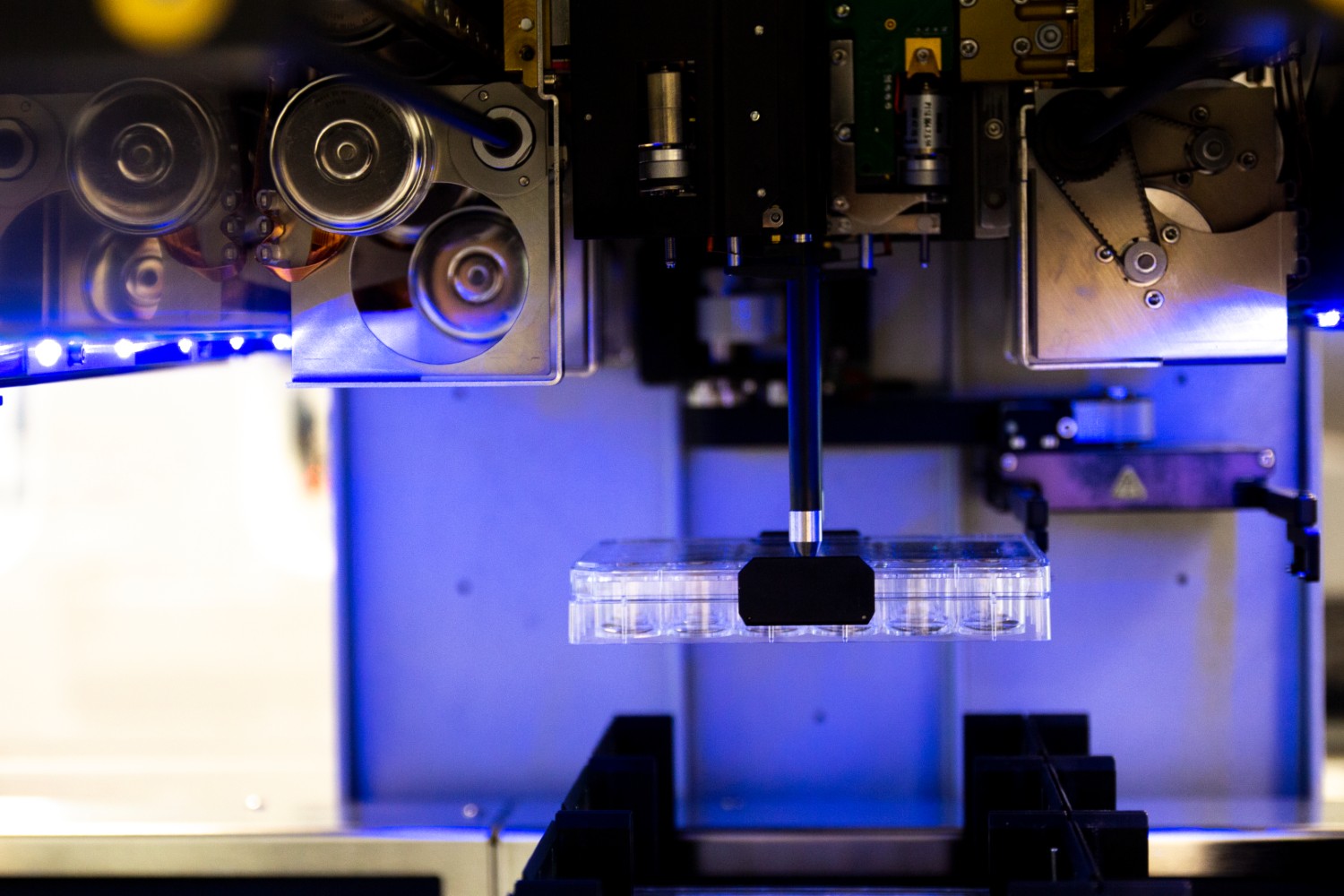UK Research and Innovation (UKRI) has launched an illuminating showcase celebrating a decade of significant contributions to the field of engineering biology.
The showcase captures the impacts of over £800 million invested in research, infrastructure and training that have positioned the UK as a global leader in this cutting-edge field.
It also illustrates how UKRI’s sustained efforts have culminated in scalable solutions that address complex global challenges.
Nature’s palette: eco-friendly textile dyeing
Colorifix is transforming the textile and fashion industry by harnessing the colours of nature through engineered bacteria that produce and deposit pigments directly onto fabrics.
This revolutionary method is setting new global sustainability standards in textile production, reducing:
- carbon emissions by 31%
- electricity consumption by 53%
- natural gas usage by 71%
- water consumption by 77%
- chemical usage by 80%
The trailblazing biotech startup is already collaborating with major brands like H&M and Pangaia.
With the support of a 2024 Engineering Biology Mission Award, Colorifix is set to reshape the textiles and fashion landscape, offering an eco-friendly alternative and leading the charge towards a more sustainable future.
Engineering hope: treating rare genetic disorders
ZYTHERA is revolutionising therapies for inherited metabolic diseases that mainly affect children.
Using artificial intelligence (AI), the spin-out is transforming the treatment of lysosomal storage disorders, significantly reducing side effects and costs by using a specialised cell line for enzyme production.
Collaborating with clinical partners for swift validation, the company is poised to bring more effective treatments to patients faster.
Supported by a £12 million UKRI investment for a new engineering biology hub, ZYTHERA is combining cutting-edge AI and synthetic biology to transform care for rare diseases.
Supercharging photosynthesis: an agritech revolution
Glaia is transforming agriculture with innovative carbon-based nanomaterials that enhance photosynthesis and dramatically increase crop yields without the use of harmful fertilisers.
Field trials have shown remarkable yield improvements:
- 8% for tomatoes
- 21% for strawberries
- 25% for lettuce
Glaia commercially launched Fragaria, a groundbreaking strawberry yield enhancer, in 2024.
With plans to expand into the EU and North America underway, Glaia’s technology is set to herald a new era in sustainable farming.
It is estimated that global crop yields could be boosted by up to 20%, while carbon emissions could be reduced by up to 8%.
Critical capacity and capability
UKRI’s strategic investments have fostered significant growth within the bioeconomy, initiating crucial collaborations between academia and industry.
Take the UKRI Synthetic Biology for Growth programme (SBfG) as an example.
Launched in 2014, this £114 million initiative not only provided support to existing synthetic biology initiatives, but it was also the catalyst for new critical research infrastructure across the UK.
As well as supporting two established Centres for Doctoral Training, SBfG funding also enabled the creation of six synthetic biology research centres and four DNA foundries.
Boosting the bioeconomy
These assets continue to play a pivotal role in boosting the UK’s engineering biology capacity and capability, successfully expanding our nation’s competitive edge as a result.
What’s more, the programme achieved an impressive return on investment, estimated at up to 8.7 times the initial investment by UKRI.
Vision for the future
Looking ahead, the National Engineering Biology Programme, backed by a £125 million UKRI investment, aims to further expand the UK’s capabilities.
The programme focuses on mission-led themes in:
- biomedicine
- clean growth
- environmental solutions
- food systems
Strength and leadership
Professor Anne Ferguson-Smith, Executive Chair at the Biotechnology and Biological Sciences Research Council, said:
Harnessing the ingenious solutions evolved by nature over millennia, engineering biology stands at the forefront of addressing global challenges, from climate change to health crises.
Our investments are paving the way for revolutionary advances across diverse sectors, ensuring the UK’s continued leadership in bioscience innovation and transformative outcomes.
The impact of our investments highlight the UK’s strengths in engineering biology, harnessing technological advancements to drive economic growth while building a greener, more sustainable future.
We are at an exciting crossroads where innovation meets application.
Our new digital showcase invites viewers to explore the creativity, innovation and impacts resulting from the work of talented individuals across the UK.
We encourage everyone, from policymakers and industry leaders to the wider public, to delve into this showcase.
Here, you will discover how our strategic investments are driving progress in the field of engineering biology and shaping the future of UK bioscience.
Top image: The Earlham Biofoundry, a BBSRC-supported National Bioscience Research Infrastructure, provides automated platforms and liquid-handling robots for the rapid design, construction and testing of biological systems. This image shows Hamilton MicroLab Star PLUS. Credit: Earlham Institute



